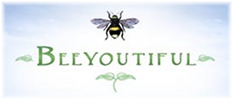Road Schooling: A snap shot
August 20, 2013 in Education
Yesterday was our first day of a new school year for our family.
Of course what that means, exactly, is hard to define for anyone not “us” because we are continually learning and it doesn’t happen between bells at any time of the year. The day before school started we spent several hours in an immersion crash course on the history of wool and its production in Australia. That didn’t count as “school” but it’s learning, nonetheless. When I say “school started” this week for us, what I mean is that we began another round of book work, after having a couple of months off.
There’s a lot of hair-splitting nonsense that goes on in the alternative education community about homeschooling vs. worldschooling vs. roadschooling vs. unschooling vs. ecclectic schooling vs. Charlotte Mason schooling vs. Waldorf schooling vs. classical schooling vs. choose-your-own-adventure schooling.
I hate it.
It makes me want to scream at people.
Where does this need to define everything and fit it all into a box (when we’ve all rejected the big box theory of education) come from? And why, oh why, oh WHY must we defend our choices and be “right” in our approach?
Let me let you in on a little secret: there is no right. There is just what’s best for your one, or two, or six, or ten kids. And what’s right for mine, might not be the same thing. It makes me sad that some of the most harsh, judgmental, critical people I’ve ever encountered in the education world fall on the “unschooling” spectrum; the very folks who seek to be known for their inclusive and open-handed approach to raising humans. Can’t we all just suspend the labels for a minute and take a look at an individual child, in an individual family, and trust the parent (who knows him best) to make the best choice, for right now, for that kid?
I spend a lot of time talking with individual families about education and how to best put feet to their philosophy of life and learning in ways that will be productive to their unique little humans. It’s fun. I really enjoy helping people create something fantastic for their families.
I don’t spend a whole lot of time talking about what education looks like for our family, though.
The main reason for this is that what we do, quite frankly, doesn’t matter, and I don’t want anyone to think they should be doing it “our way.” Comparison is often the measurement of one persons weaknesses (of which we are intensely and privately aware) against another’s strengths (which are often all we see of another family’s schooling life.) That’s not productive for anyone.
I do, however, get quite a lot of questions about “how we do it” and, so, I’m going to make an exception and tell you how we do it… but ONLY if you promise not to treat this as anything other than one family’s report on their choice. It’s not a recommendation. It’s not a suggestion. It’s not the end-all-be-all of anything. It’s just how “we” do it. You should also know that “school” with three teens and a tween is drastically different than it was with two babies and two littles. How we do it with backpacks and laptops is nothing at all like how we did it with a designated school room and a wall full of books. Also, what we’re doing now on the “almost done” end of schooling these kids is the direct result of what we planned out carefully and did early on in the “they’re nearly babies” stage of their journey. How’s that for a few caveats?? Onward.
Philosophy:
It might be helpful to know that our basic philosophy of education is a blend of the Classical and Charlotte Mason approaches to education.
We have a rather antique definition of education with strong leanings towards a liberal and deep treatment of all subjects. We expect that all of our children will attend university, and we plan to pay for this (please, no rabbit trail commentary about the uselessness of higher education, we can discuss that ad nauseum in another post if you like; we expect our kids to get the piece of paper, as a bare minimum).
To this end, we lean heavily into history, classic literature, philosophy, the arts, science and math with high expectations across the board. Why? We believe the best way to develop truly educated, thinking persons, is to let them rub shoulders with the “greats.” Go have a chat with Mortimer Adler if you’ve got questions about that. One’s philosophy is the determinant behind methods choices; it’s important to define yours.
Basic Schedule:
For some reason this is fascinating to people, perhaps because they can’t imagine how homeschooling families “get it all done.” I can only speak for us. From early on we’ve operated on a four day a week schedule because I don’t think kids (little ones especially) need a five day a week anything, including school. We take Wednesdays off. We always have. At this stage of the game, book work takes about four hours, a bit less for Ezra, and we get up and crack it out in the mornings when everyone is fresh.
We spend our afternoons on a myriad of other things: today the kids are constructing things from popsicle sticks and hot glue, Ezra baked a cake, Hannah is making minestrone soup for dinner, Elisha walked in to town and ran some errands for me. They’re now watching a movie (very educational, I assure you: Cool Runnings!) Of course we travel, so we might also be visiting a museum, climbing something, hanging out with locals, or any number of other things.
Who is studying what:
Hannah (17): The girl is “done” with her school, and has been for well over a year. What that means is that she’s “graduated” by American and Canadian standards, so she’s been taking a couple of classes at a time through Oregon State University for the past year. Her next round doesn’t start for a few weeks yet.
Additionally, she’s expected to pursue her own interests and work on building her life and career, which she is doing. She is mentoring with Dr. Jessie Voigts, of Wandering Educators, she’s doing some editorial work with Real Family Travel Magazine, she’s freelance writing for a few websites and working on building her own. She’s also working on her second book contract for Artzy Girlz Inc. We find it a bit funny that a life-long homeschooled girl is the ghost writer for books being sold into the public school market in the USA. She’s learning lots from that! She spends a couple of hours a day on her instruments and art as well as being an avid reader. She wants to hang around for another year or so before we transfer her credits to a brick and mortar uni for her to finish up with an International Studies degree (at least that’s her current plan!)
Gabriel (15): He’s got a year left before he starts on some uni courses so we’re treating this as his last “official” year of schooling, although he may do six months of some blended home-away education next year. We’ll see.
His course load this year includes:
- Geometry
- Anatomy
- British Colonial History
- Classic American Literature
- Composition (uni-prep)
- Geography
- Music Appreciation
- Art
He’s also enrolled in the 201 course with Wandering Educators that focuses on developing skills in new media.
Elisha (13): Is in his first year of high school work, by North American standards.
His course load this year includes:
- Pre-Algebra
- Life Science
- British Colonial History
- Introduction to World Literature
- Basic composition
- Geography
- Music Appreciation
- Art
Ezra (11): is in what we consider 6th grade (based on math and language proficiency)
His course load this year includes:
- Math 6
- Astronomy
- Introduction to World History
- Language Arts & Composition
- Geography
- Music Appreciation
- Art
Looks simple enough, right?
We also read a lot, out loud. Tony is working through Moby Dick and Ender’s Game with them in the evenings. I’m reading a history of Australia over meal times.
Their art lessons happen via Skype with the best international art teacher on the planet, Caroline.
The younger boys are working on their SCUBA certification this fall. The book work is online, the pool work was courtesy of our friend Talon, and their open water dives will happen on the Great Barrier Reef in a few months.
We’re participating in weekly sports days with a homeschool group here in Drysdale, Australia.
Of course they’re also pursuing loads of interest driven studies in addition to their “required” work (much of that they have a hand in choosing as well!) And they journal. Oh yes, we’re one of those terrible families that requires our kids to journal as we travel. Why? Because the journals I cursed my parents for “making” me keep when we were traveling when I was a child, are now my most prized possessions. Kids don’t always have perspective on that sort of thing.
The next question someone is going to ask is, “What, specifically, we use for each subject.”
I’m reticent to answer that, because there are so many great resources out there. I’d hate to prejudice you for, or against a particular thing just because we like (or don’t like) it. If you really must know then email me, and I’ll tell you.
I will tell you that we’re big fans of many of the digital textbooks being produced for the iPad, we’ve used more than a few of The Great Courses for high school courses, and the free online course work available through iTunes U, Stanford, MIT, Coursera and others are well worth your time to check out.
How do you teach them all?
I don’t. From the very beginning, our first goal has been to create independent and self motivated learners. People who know how to learn for themselves and can get the job done without spoon feeding.
When we begin to work on next year’s school plans I conference with each kid and we talk about their interests, what they’d like to study. They choose from within the basic framework of “math, language, writing, geography, history, science” their specific courses. I then spend a couple of weeks breaking it down for them into weekly plans that span about 32 weeks of a “school year.” I hand them the plans, a few months worth at a time, and they are responsible to “git ‘er done.”
I make myself available every morning. I check with everyone each week. I do grading or correcting if it’s necessary, but their work, and getting it done, is completely their business. If they want to get up at five and do math to free up the day for other things, then they are free to do that (in so far as it’s not interfering with the peace of others!) They manage their own time in their own way. It’s their education, after all, not mine. I station myself in a central place and get on with my own work! 🙂
What happens when you’re actively traveling?
Great question. We are flexible. We rarely just have to get up and go with no warning. We know our schedule a few weeks to a few months at a time. For instance we know we’re going to be in Drysdale for 8-10 weeks. This is a good time to knuckle down and get some consistent work done (for adults as well as kids!) When we leave here we’ll have about three weeks of road trip in northern Australia, followed by a week in Hawaii and then the beginning of a long road trip in North America. This will require flexibility! Since we only plan only four days per week of book work, they can usually get that in, even in a busy travel week. Sometimes they work early mornings and evenings before bed instead of mornings if there are friends to play with or outings to be had. Sometimes they’ll take a look at the upcoming road trip rodeo and decide, for two weeks before, to work hard and get ahead so that they can have a few weeks off completely. They have the freedom to organize that in whatever way suits them; it’s their responsibility.
And now, I’m worrying…
About the effect of a post like this and the comments that are inevitably coming.
There will be those who are complimentary and think it’s all great. If you’ve met my kids, then you have better perspective than most on how it’s going (the good, the bad and the ugly!) If you haven’t, please remember that my kids are real people, not blog-people. They have their successes, and their failures, and they’re allowed both.
There will be people who think it’s horrible that I expect anything at all, and who passionately believe that it’s “wrong” to “require” kids to learn things they “don’t want to.” I’m happy to debate that, in person, when I can see the whites of your eyes, when you’ve met my kids and can see who they are. I’m well aware of the differing educational philosophies, I make it my business to read and think deeply about that sort of thing, even where I passionately disagree. You’re most welcome to think I’m profoundly wrong in my approach to educating my kids, but ultimately, it’s my choice, not yours. We’re well convinced that this is the best approach for our children. You may take a different path, with our blessing!
I’m worrying most about the people who won’t comment at all because they’ll be demoralized by the comparison of something I can’t see from where I sit. Please don’t do that. Don’t do it to me and my kids. Don’t do it to yourself and yours. I remember looking at families with teens when we were in the throes of middle childhood and thinking, “WOW! They’ve got it SO together and our house is SUCH a train wreck!!” When I managed to be brave enough to articulate that to a couple of my “hero moms”… they laughed in my face, lovingly, of course. You get to be where you’re at in your process. I get to be where I’m at. You’ll do it your way, and you’ll do your very best; so will I. If you think I’m doing an amazing job… let go of that and know I have terrible days. If you think I’m royally ruining my kids, I can live with that, you’re allowed to believe that. Let’s hold hands and help each other instead of comparing or arguing, or insisting someone has to be right, or better, shall we?
If you have questions, email me and ask them. I’m happy to help you forward in any way I can.

 RSS - Posts
RSS - Posts


























Thank you for providing this level of detail about your children’s education. Before reading this post I had no insight into what it takes for a road schooling family to function. It sounds like your kids are going to be better prepared for “real” life than a lot of the people I went to school with.
On the road schooling is something both Franca and I have discussed on time innumerable as we consider that neither of us wants to stop travelling and as we’re getting older we should probably consider that we might want to have children at some stage (still up in the air).
I’m really glad to find you being so open about how you all decide together how things are going to plan out and that nobody is forced to sit through anything they don’t really like or that they can’t move on when they understand something.
One thing I really hated about school was that after completed my homework I’d then go ahead and read the following chapters and answer the questions in my exercise book to which my teacher freaked out. I was therefore required to do the work set for me then have to endure sitting through lessons that were boring and too slow for me. Needless to say, I didn’t care much for school after that.
YES!! I also struggle to understand how judgmental people practicing different alternative education ‘systems’ are towards one another. And I, too, am struck dumb by some of the ones who say they give their children ‘total freedom’, but won’t allow the same respect to families who choose to educate in ways they aren’t. Love seeing what your young folk are up to, and think it’s helpful to see how you all make it work. Thanks!
Dale… yeah, I hated that about school too. I would have blown through far more content if given the opportunity, and I’d have spent less time making trouble. 🙂 There are lots of ways to accomplish an education. Our way is just one, and only “ours”. I’m glad you’re encouraged by the possibilities, should you ever have kids! 🙂
First of all, thanks for the great post. I was about how in awe I am, how it sounds like you’ve got it all together and it feels overwhelming (mostly because I haven’t started planning for that yet, as we haven’t even left on our trip and are still in the planning stages with my 6 yr old in school)…. I hope to take bits and pieces from all I’ve read and apply it. And now nothing to do with schooling but if you are in southern California on that road trip… we would welcome you here. 🙂
Thanks Anne! I’m glad something in it resonated with you and was helpful. Never hesitate to shoot me an email, I’ll help you forward in any way I can!
Great post. I love visualizing what it looks like like on the road. My main concern would not be fitting in the academics but how to find groups of people to hang out with.
Homeschool Planet, you know, that is never a problem! We find people to hang with everywhere we go. At this very moment we’re in Australia and within four days of arriving we were plugged into the local homeschool group. The kids are hanging with friends three days a week and having a blast!
I am so glad to hear that! Meeting people would probably be my biggest concern! I can see how the academics would happen. That’s great that you’ve already made friends!
Love this! We just started on a classical homeschool program, hoping to travel in the future. I have always been a little bit of a rebel when it comes to education and you hit the nail on the head with this post. Good for you for following what you believe is the right thing for your family. I hope to follow in your foot steps someday very soon.